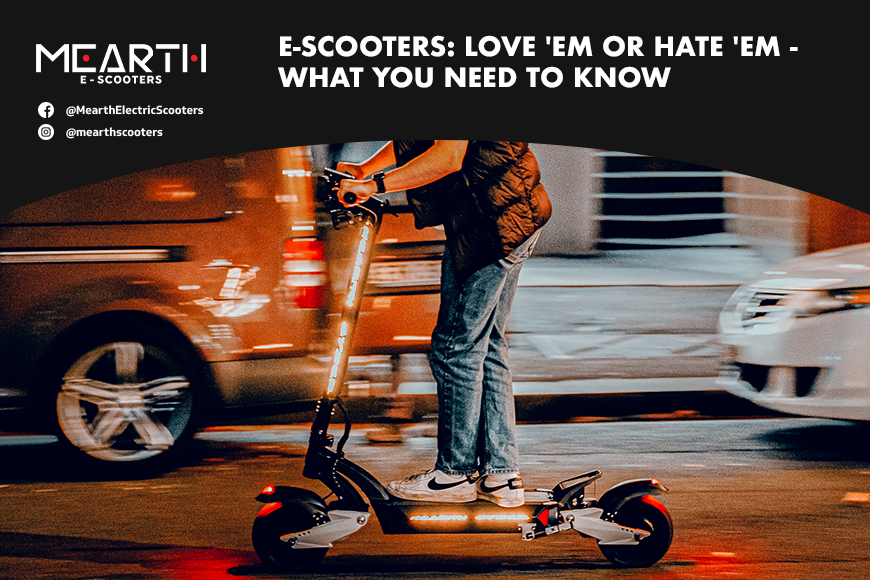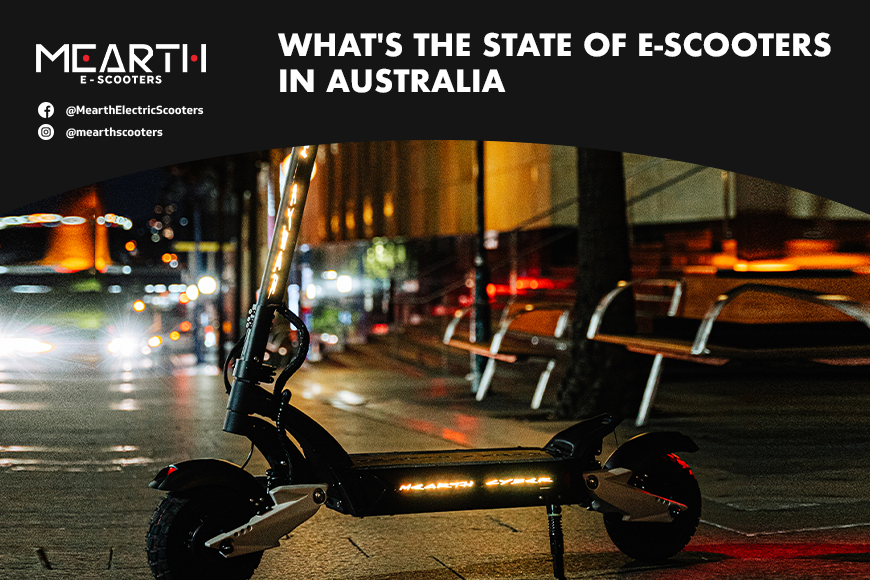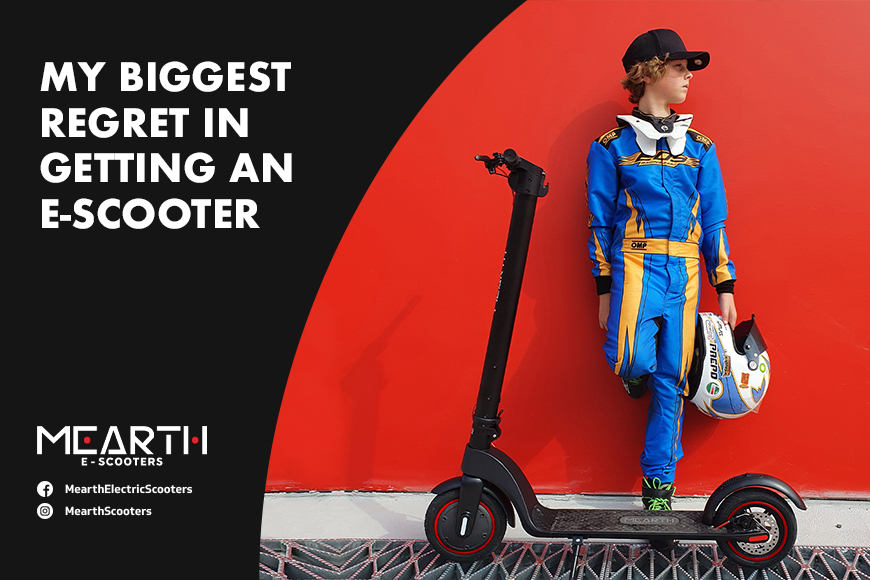
Around the world, lightweight folding mobility electric scooters are fast becoming more and more popular, especially in urban areas where they offer a convenient and eco-friendly way of commuting.
However, they also have their drawbacks and challenges, and not everyone is a fan of e-scooters. Perhaps, this is why we need to look at the pros and cons, and what you need to know -- if you're considering getting one.
What exactly are electric scooters?
They are stand-up, two-wheeled vehicles that are powered by electric motors and batteries. Controlled by a throttle on the handlebars, they have brakes and lights. Mearth's premium, high-performing electric scooters for sale in Australia have a speed of 25 km/h and can reach more (based on the allowable speed mandated in the city’s road and traffic regulations).
Electric scooters can either be bought privately or rented from shared schemes that allow users to locate, unlock and pay for them using a smartphone app.
There’s a Mearth RS or RS Pro long-range electric scooter perfect for leisure and recreational transport. They can also be combined with public transport for longer trips.
Let’s talk about the benefits of electric scooters, and why many people have grown to be fond of them.
Take a look at the electric scooters’ distinct advantages:
- Saves time and money: Electric scooters help the rider avoid daily traffic jams and costly parking fees. The good thing too is that riding an e-scooter is faster than walking or cycling for short distances. Affordable and easy operate than cars or motorcycles, they do not require fuel, insurance, registration or monthly maintenance costs.
- Helps reduce carbon emissions: Since electric scooters are powered by electricity which can come from renewable sources such as solar or wind, they do not emit any greenhouse gasses or other pollutants while in use. They are also much more energy-efficient than cars or motorcycles, as they use less energy to move a person.
- Improves health and well-being: Riding an electric scooter can improve one’s fitness, posture, coordination, core strength, mood and stress levels. Riding and exercising at the same time and yet there is no over-exertion. It can also provide a fun and enjoyable way of traveling, allowing the rider to explore new places, bond with close friends and relatives, or meet new people.
The haters talk about the drawbacks of electric scooters for sale in Australia.
Some of the perceived disadvantages of electric scooters:
• The legal and social barriers: Electric scooters are not legal everywhere, and the laws vary in every region and city. Some places have rigid rules than others regarding speed limits, power output, helmet use, road access and age limits. Some places also ban electric scooters altogether or impose fines or penalties for breaking the rules.
• Accidents and injuries risks: Electric scooters can be dangerous for riders and others if they are not used properly or safely. The perception is that electric scooters can cause collisions with pedestrians, cyclists, cars or other obstacles, especially on busy roads or paths. Electric scooters, specifically the cheap, fake or clones, unbranded ones are more often prone to malfunction or break down quickly either due to low battery, flat tire or some mechanical issues.
• Can contribute to environmental issues: Electric scooters may not be completely green, as they still have some environmental impacts, requiring electricity to charge their batteries. That electric scooters have a limited lifespan and durability is contentious, rashly presumed that when no longer usable, they will be disposed of, in landfills or oceans as waste.
Irresponsible riders are often the culprits, violating and disregarding safety precautions that are for their benefit actually; poor e-scooter maintenance, mishandling, abuse and improper care will rapidly lead to the untimely deterioration and unusability of one's electric scooter.
To the serious buyer, or e-scooter rider, take note of what you need to know :
- Check the laws in your area: Do you need a license, training, registration or insurance to ride an electric scooter legally? Be sure to follow certain rules and etiquette in your city regarding speed limit, power output, helmet use and road access to avoid penalty. Ride on the designated paths or lanes if available, and give way to pedestrians and cyclists. Always signal your intentions, avoid distractions, and be courteous and respectful to others.
- Choose the right model for your needs: Choose the one that suits your needs and preferences best. Consider factors such as battery life, range, speed, weight, size, design and price. Is it a commuter e-scooter you need for city riding to go on short trips or errands, or do you like to go further, like covering and reaching more, then a long-range or a heavy-duty, on-and-off-road electric scooter would be your best bet. (to know more, visit www.mearth.com.au).
- Wear a helmet and other safety gear: You need to wear a helmet when riding an electric scooter to help protect your head from serious injuries in case of an accident. But don’t stop there – you should wear other safety gear such as gloves, elbow pads, knee pads and reflective clothing or lights at night.
Now that there is clarity over how things are, there is no doubt that electric scooters have proven that they are indeed a great option for short-distance travel, as they can save time, money and carbon emissions. Electric scooter riders in Australia are law-abiding and give t.l.c. or tender loving care for their precious rideables, loving the real benefits of electric scooters, and mindful of potential drawbacks.




Leave a comment
This site is protected by hCaptcha and the hCaptcha Privacy Policy and Terms of Service apply.